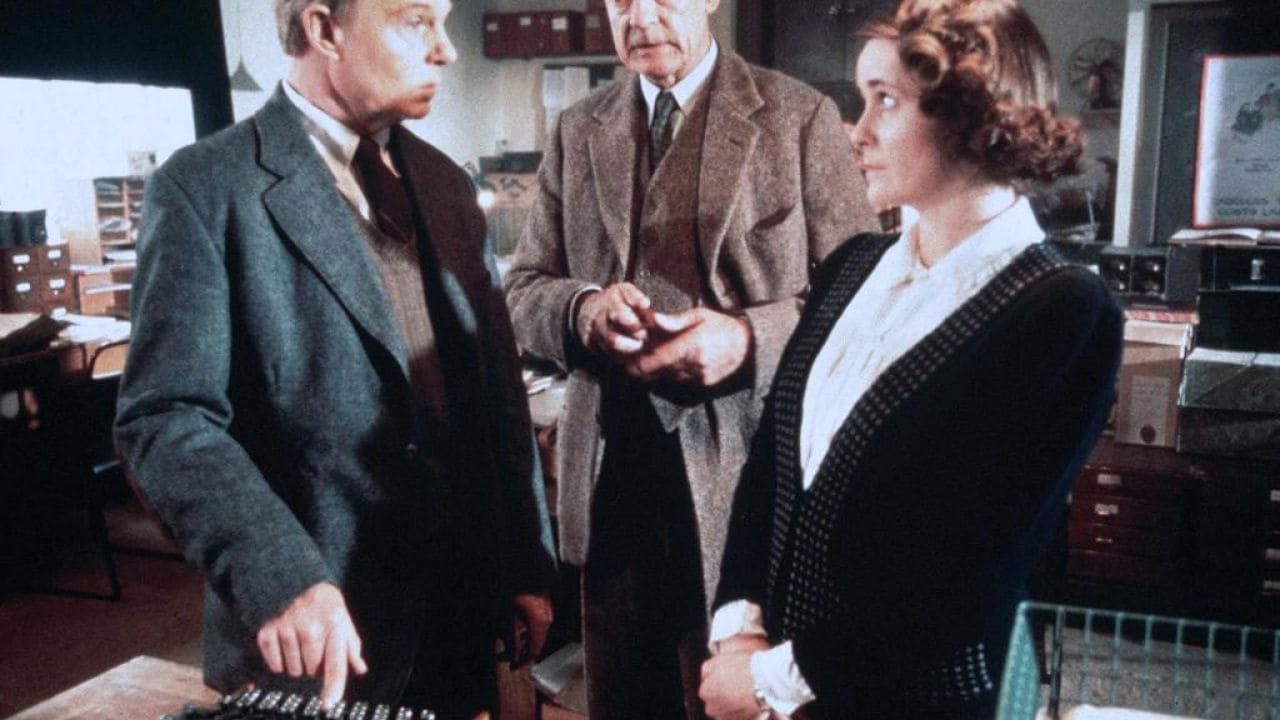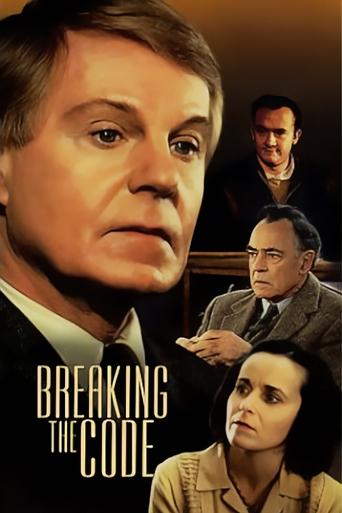



Entertaining from beginning to end, it maintains the spirit of the franchise while establishing it's own seal with a fun cast
View MoreThere are moments that feel comical, some horrific, and some downright inspiring but the tonal shifts hardly matter as the end results come to a film that's perfect for this time.
View MoreClose shines in drama with strong language, adult themes.
View MoreThe film never slows down or bores, plunging from one harrowing sequence to the next.
View MoreI'm not interested in mathematics. Or the history of the computer. Or indeed, homosexual politics. But I am concerned with the talents, vicissitudes, suffering, blossoming, and achievements of human beings. And this is a tale full of humanity - and drama, as that humanity, and the talents and nature of Alan Turing are beaten down. The assault and damnation of his sexual orientation amount to a pervasive crime. It's about as dramatic a dynamic as you can find. And at the centre of it all: Derek Jacobi's remarkable performance. Forget I Claudius and Hamlet, this is his finest hour. Characteristically, he effortlessly takes us into the heart of Turing and allows us to feel his cleverness and his pain. His tender, acutely-observed performance induces us to rage, rage against the moon as this heroic character is beleaguered by the mores of the era, and in doing so, the deft Jacobi has somehow made the example of Turing one to benefit, push and shame mankind, as well as to inspire it to greater aspirations. A magnificent story, a magnificent, classic production, and an insurmountable performance at its heart.
View MoreSomewhat misleading if you want to learn about the history of super-secret Bletchley Park (BP) and breaking the German's "Enigma" codes during WWII. This film flits back and forth between pre and post-war scene's describing some of Alan Turings involvement at BP, but really focuses on the post WWII era leading to Turing's suicide. The "codes" being broken in this story are social.Turing's eccentricity and sexuality remain overlooked while he is vital to the war effort, but become the reason for mistrust, suspicion and even betrayal after-wards. Despite being a brilliant mathematician in a quest for beauty of mathematical truth in the Enigma codes, he is ultimately undone and outed by his own naivety.This film is also an homage to the unique style of Harold Pinter's intense personal dialogue's. Pinter himself appears as the mysterious yet vague intelligence "handler" who confronts Turing after he becomes a security concern. These scenes are Turing's "soliloquy" to the question of what drives his loyalty to truth and in his mind, to England. As he comes to understand their distrust, his words resonate with an anti-MacCarthyan rhythm and represent the stark psychological volte-face from pre-WarII naivety to Cold War paranoia.
View MoreI came to this film thinking it would be about the code-breaking element of Alan Turing's life, his work on the famous Enigma code and computers and it took me a minute to get into the fact that the film is actually much more about him as a man in the later stages of his life. In this regard the film actually turns out to be more interesting than it would have been if it just focused on the work side of the man; certainly it serves up more for the writers and lead actor to work with.I think it was a coincidence but the film was shown recently on BBC4 around the time that Channel 4 was marking the 40th anniversary of the legalisation of male homosexuality in the UK, which is a theme that is central in this film. The material brings out the genius and imagination of Turing but also the tragic confession that saw his life under threat. The film leaves us in no doubt that Turing was fortunate in his situation but that the illegal nature of his (now commonplace) sexual relationship saw his life threatened regardless of what he had done in the past.It is this truth and this struggle that the film focuses on and it makes it more interesting as a result. Wise's direction is quite patient and still, which makes the film feel a little stagy and slow but works in the way it sits back and allows the cast to work. Specifically this serves Derek Jacobi well because his performance is impressive throughout, whether it is his passion for his subject or his sense of panic when he realises he has incriminated himself, he is convincing. Support is good from Armstrong, Scales, Pinter and others but the film does belong to Jacobi.Overall then this is a slow film that may frustrate some viewers with its pace or the way that it overlooks Turings work in favour of him as a man. This does work though and makes for an interesting character piece and, other than the pace the only issue I had with it was the fact that the film concludes with the news that Turing was later recognised by having part of a roundabout in Manchester named after him. Surely it would have been better to have closed the film by remembering his contribution rather than this rather weak platitude?
View MoreA moving depiction of the life of genius Alan Turing, the mathematician who broke Nazi Germany's Enigma code during WWII and who provided much of the theoretical foundation of modern computer science. Jacobi masterfully portrays Turing in all phases of his life, from his troubled days as a student to his career as codebreaker at Bletchley Park, and to his later suicide after having been hounded to the point of despair by an ungrateful and mistrustful government over his homosexuality.If this film has a flaw at all, it's that Jacobi is physically unlike Turing in every way; there's absolutely no point of resemblance. But his performance is so absorbing that you don't really notice until it's all over with.
View More